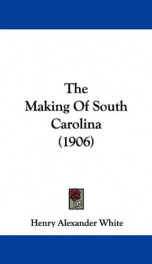robert e lee

Purchase of this book includes free trial access to www.million-books.com where you can read more than a million books for free. This is an OCR edition with typos. Excerpt from book: CHAPTER II. EDUCATIONMARRIAGEEARLY SERVICE IN THE ARMY. 1811-1846. jjO the quiet town of Alexandria, Virginia, in the year 1811, came Colonel Lee with his family. The schools there available for the children drew the old soldier away from the scenes of plantation life at Stratford. An epoch-making scene in the governmental drama was soon to burst upon his view. The child of four years, Robert, in the house on Cameron Street, near Christ Church, could not yet understand the political situation, but with eager interest did the father keep watch upon events in the Capital. Just across the Potomac from Alexandria sat James Madison in the President's chair. Into the Capitol in the autumn of the year 1811 came the Twelfth Congress to consider the grievances against England, grievances that had burdened the people of our country for twenty years. At the head ofthe Republican-Democratic party in the House stood now two young men from the South, John C. Calhoun and Henry Clay. They were filled with the spirit of patriotism; they were burning with the desire to maintain the honour of the United States against foreign aggression. These leaders inaugurated a vigorous policy toward the haughty mistress of the sea, and succeeded in carrying a declaration of war against England, June 18, 1812. The Opposition was composed of the ancient Federalists, assisted by John Randolph of Virginia. The news of war was greeted in New England with the tolling of bells, despite the fact that England had forcibly impressed into her navy more than four thousand American seamen. Some of the Eastern States carried their Opposition policy to the extent of nullifying the Acts of Congress, and, in 1814, delegates from these commonwealths assembled in the Hartford Convention to give serious consideration...
Info about the book
Author:
Series:
Unknown
ASIN:
117695332X
Rating:
3.5/5 (2)Your rating:
0/5
Languge:
English
Users who have this book
Users who want this book
What readers are saying
What do you think? Write your own comment on this book!
write a commentif you like robert e lee try:
Do you want to read a book that interests you? It’s EASY!
Create an account and send a request for reading to other users on the Webpage of the book!




